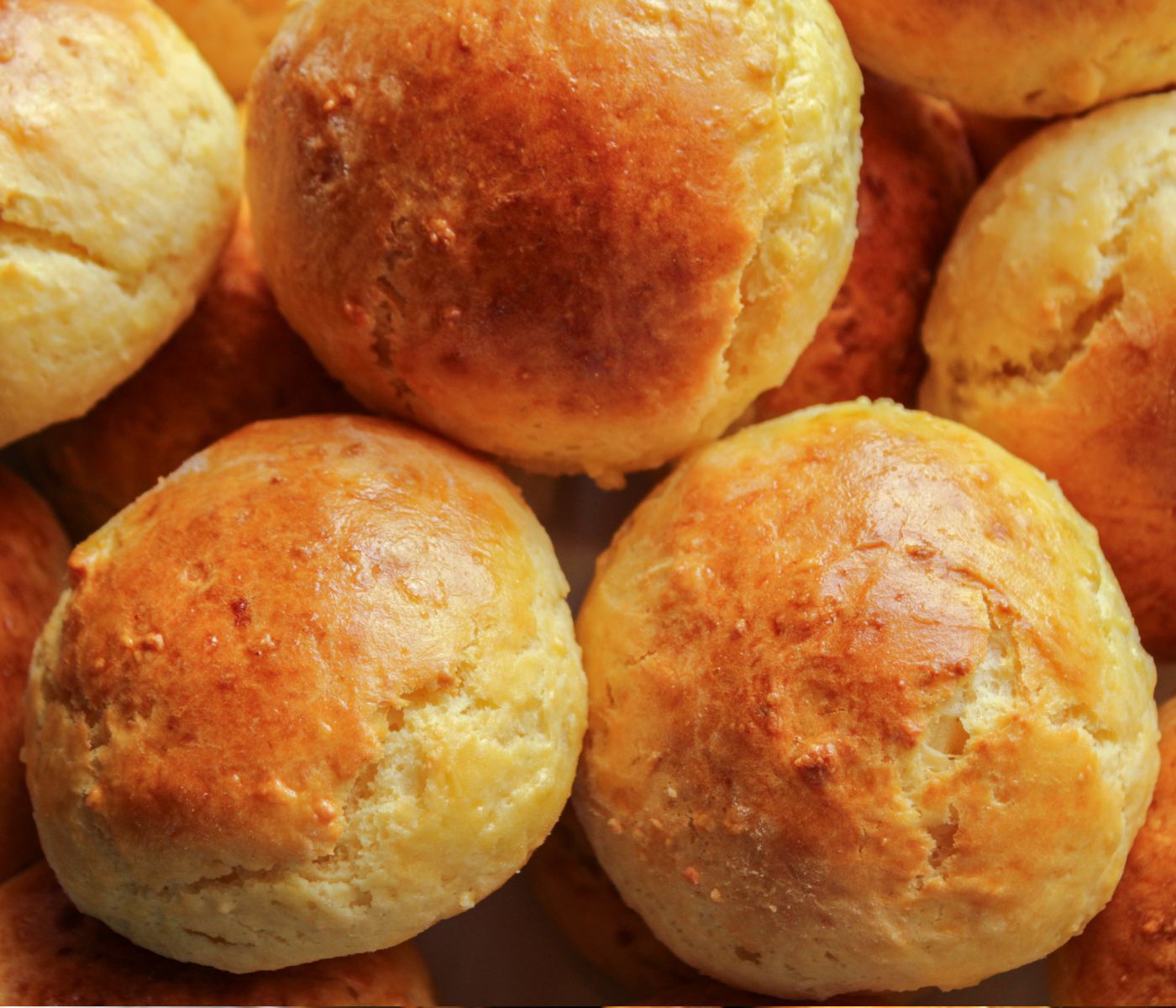Soft buns are a delightful and filling snack, especially when stuffed with sweet ingredients like honey butter icing. If you own a dog, you might be wondering whether dogs eat honey buns or not.
So the question is Can dogs eat honey buns? While honey buns are not hazardous to dogs, they are high in sugar, carbohydrates, and calories, which can be harmful to your dog’s health if ingested in large quantities or frequently.
Dogs thrive on high-protein diets with little carbohydrates because they are carnivores, therefore a diet strong in sugar and carbs might disturb their digestive tract and cause health problems.
While it may be tempting to give your dog a treat from the table, keep in mind that dogs have different nutritional demands than people and that giving them human food can result in health concerns.
Instead of giving your dog honey buns, give him healthy, dog-specific snacks that are low in sugar and high in protein.
The Ingredients of Honey Buns and Their Effects on Dogs’ Health

Honey buns are a beloved sweet delicacy among humans, but they include a number of substances that are toxic to dogs.
While honey buns are not poisonous to dogs, they do contain a lot of sugar, fat, and chemical ingredients, which might cause health problems.
If your dog eats honey bun, he or she may have digestive difficulties, gain weight, and be at a higher risk of developing health problems such as diabetes and pancreatitis.
The following substances are typically present in honey buns but are not suitable for dogs:
- Sugar: Honey buns contain a lot of sugar, which can cause obesity, dental difficulties, and other health problems in dogs. Sugar can also induce an increase in blood sugar levels, which can lead to issues such as diabetes.
When dogs consume sugar, their blood sugar levels rise, which can have long-term harmful repercussions on their health.
Consistently high blood sugar levels can harm the pancreas, which is in charge of manufacturing insulin.
Insulin regulates blood sugar levels in the body, and injury to the pancreas can lead to diabetes, a chronic condition that necessitates continuing medical care.
- High-Fructose Corn Syrup (HFCS): High fructose corn syrup (HFCS) is a sweetener present in a variety of human meals, including honey buns, however it is toxic to dogs.
HFCS is a corn-derived artificial sweetener that is significantly sweeter than ordinary sugar. When dogs consume HFCS, it can cause digestive issues as well as weight gain.
One of the reasons HFCS is toxic to dogs is that it is highly processed and has little nutritional value.
When dogs consume HFCS, their blood sugar levels might soar, potentially leading to issues such as diabetes.
Another issue with HFCS is that it is frequently added to highly processed goods like honey buns, which are already rich in calories, fat, and sugar.
When dogs accumulate certain items, they may be at a greater risk of obesity and other health problems.
Furthermore, HFCS can cause digestive issues in dogs such as diarrhea, vomiting, and stomach distress.
- Artificial Colors and Flavors: Several human foods, like honey buns, have artificial colors and flavors, which are harmful to dogs.
These additives are frequently used to improve the taste, color, and texture of processed foods, but they can be harmful to a dog’s health.
Artificial colors and flavors are not suitable for dogs since they are frequently created with chemicals that can cause allergic responses, skin irritations, and digestive difficulties.
When dogs take these chemicals, they may experience vomiting, diarrhea, and loss of appetite accumulate certain items, and they may be at a greater risk of obesity and other health problems.
- Wheat Flour: Wheat flour is a prominent ingredient in bread, pastries, and other baked goods, however it is toxic to dogs due to its difficulty in digestion.
Wheat flour is not suitable for dogs because it includes gluten, a protein that can cause digestive difficulties and allergic reactions in certain dogs.
Gluten can cause intestinal inflammation, which can cause symptoms like diarrhea, vomiting, and stomach pain.
Additionally, gluten can cause skin and respiratory problems in some dogs, especially those who already have allergies or sensitivity to gluten.
They have a better immune system than humans and are naturally suited to eat a diet heavy in protein and low in carbohydrates.
- Raw Dough: Raw dough is not safe for dogs, and there are various reasons why pet owners should be wary of giving it to their pets.
To begin with, raw dough contains raw wheat, which is not only difficult for dogs to digest but also can contain hazardous germs such as E.coli and Salmonella.
These bacteria can cause severe infections in dogs, resulting in significant sickness or even death. Second, raw dough includes yeast, which can cause severe discomfort and even death in dogs.
Gas can build up in the stomach and intestines as a result of yeast, causing bloating, abdominal pain, and other gastrointestinal symptoms.
- Raisins: Some bakers may add ingredients such as raisins or other species to make honey buns tastier.
It is crucial to know, however, that raisins are highly toxic to dogs and can cause severe renal damage or even death if consumed.
Similarly, spices such as cinnamon and nutmeg can cause gastrointestinal discomfort in dogs, including vomiting and diarrhea.
To avoid any potential danger or disease, it is better to avoid providing honey buns containing raisins or spices to dogs entirely.
Are Honey Buns Safe For Dogs To Eat?

Honey buns are a mouth – watering treat that’s difficult to pass up, especially when they’re newly made and drenched in a sweet glaze.
However, before sharing your snack with your pet, you should think about their health and safety. While honey buns are not hazardous to dogs, they should be eaten in moderation and certain ingredients avoided entirely.
Buns containing raisins, cinnamon, or chocolate, for example, should be kept away from dogs because these substances might be damaging to their health.
Furthermore, because honey buns are heavy in sugar and calories, giving them to dogs on a daily basis may contribute to obesity and other health problems.
If you do decide to share a honey bun with your dog, make sure you remove the honey bun first to avoid sugar overdose, leave out the glaze section.
Before giving your dog honey buns or any other treats, like with all human foods, consult with your veterinarian to assure their safety and well-being.
Are Any Ingredients in Honey Buns Safe for Dogs to Eat?
While honey buns are not the most dog-friendly meal available, some ingredients are okay for dogs to consume in tiny amounts.
For example, honey is a natural sweetener with numerous health benefits for dogs. It is high in antioxidants, has antimicrobial qualities, and can relieve coughs and sore throats.
Butter, in moderation, honey is also safe for dogs because it contains protein and healthy fats.
Nonetheless, these nutrients should still be given in very small amounts and as a treat rather than as a regular part of a dog’s diet.
Before giving your dog any new food, always consult with your veterinarian to ensure it is healthy for him.
How much Honey Bun should I Feed my Dog?
If you are thinking of giving your dog a honey bun, keep in mind the potential consequences of consuming too much sugar and calories.
While a small bit of honey bun may be healthy for dogs on occasion, it is not suggested that they ingest it on a daily basis.
Can I Give My Dog Honey?
Honey, which is simple and sweet, contains natural sugars that are said to offer a wide range of medicinal qualities for humans. It also makes its way into the mouths of our dogs on occasion.
But is honey safe for dogs? And does it have any health benefits for them? Honey is safe to feed to dogs in small amounts. It has natural carbohydrates as well as trace levels of vitamins and minerals. It is also used to sweeten a variety of meals and beverages.
Sweetness, though, comes at a cost. If owners give their dogs too much honey and do not provide appropriate exercise and balanced nutrition, the high sugar content of honey can lead to obesity in dogs.
Sugars can also promote tooth decay, so brushing your dog’s teeth is a good idea if you offer them honey.
Raw honey should not be provided to puppies or dogs with impaired immune systems because it may contain botulism spores. Dogs who are diabetic or obese should not be given honey.
Click the link below to know more about can dogs eat honey?
Can I Give My Dog Buns?
The answer to the question “can dogs eat bun” is yes. If you are thinking of giving your dog bread, keep in mind that not all bread is made equal.
Bread with raisins, garlic, onions, or chocolate in it can be toxic to dogs and cause major health problems.
If you do decide to offer your dog bread, make sure it’s plain and free of any extra components that could be harmful to them, and only give it to them in little amounts as a treat.
Always consult with your veterinarian before introducing new items into your dog’s diet.
CONCLUSION:
While honey buns are not poisonous to dogs, they are also not the healthiest treat option.
Because honey buns are heavy in calories and sugar, they should be offered to dogs in moderation. Dogs who ingest too much sugar may become overweight or develop dental problems.
Additionally, honey buns frequently contain dog-toxic ingredients such as raisins, chocolate, or cinnamon
Like with any human meal, only feed your dog tiny portions of honey buns as a treat on occasion, and speak with your veterinarian if you have any concerns about their nutrition.
